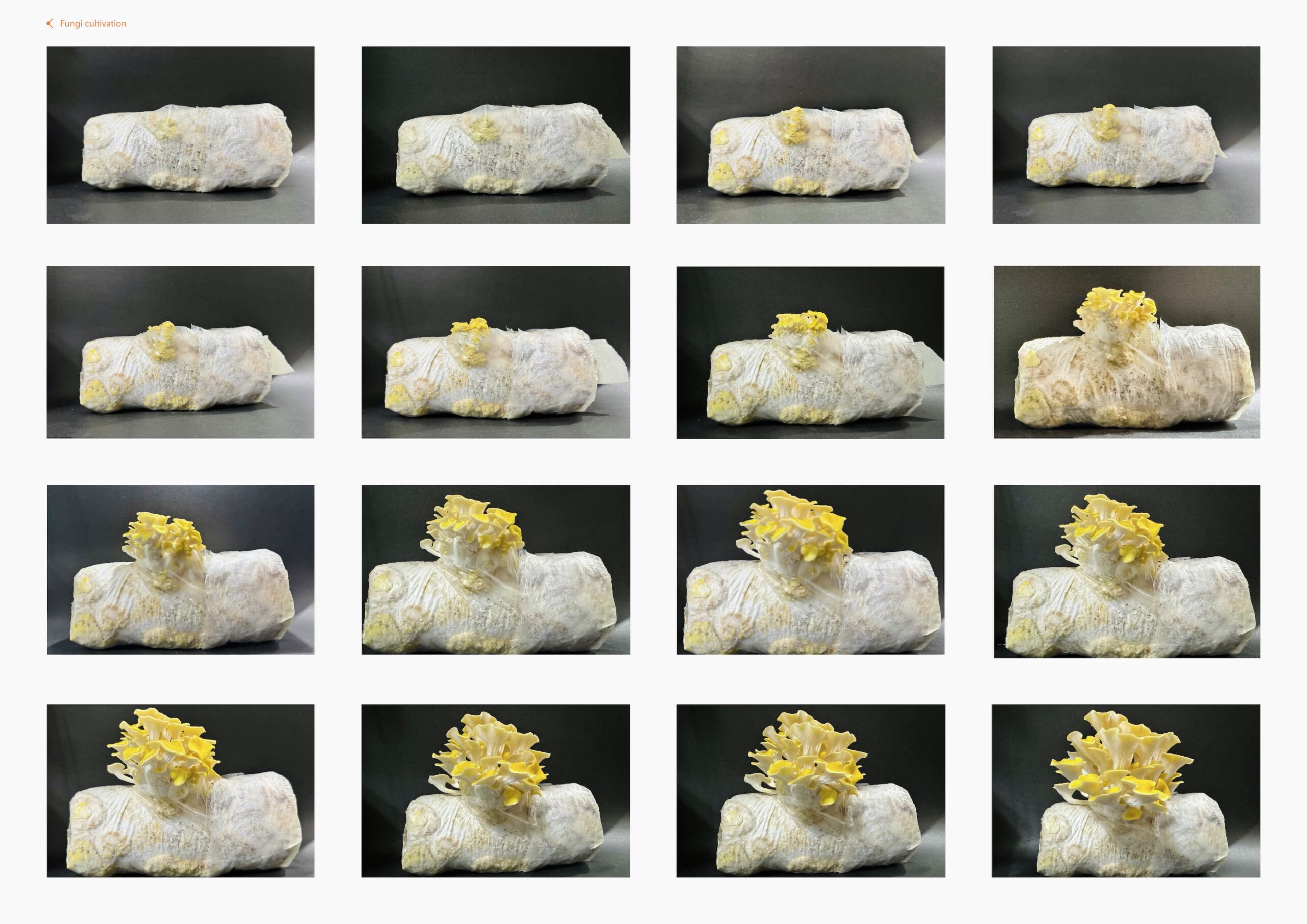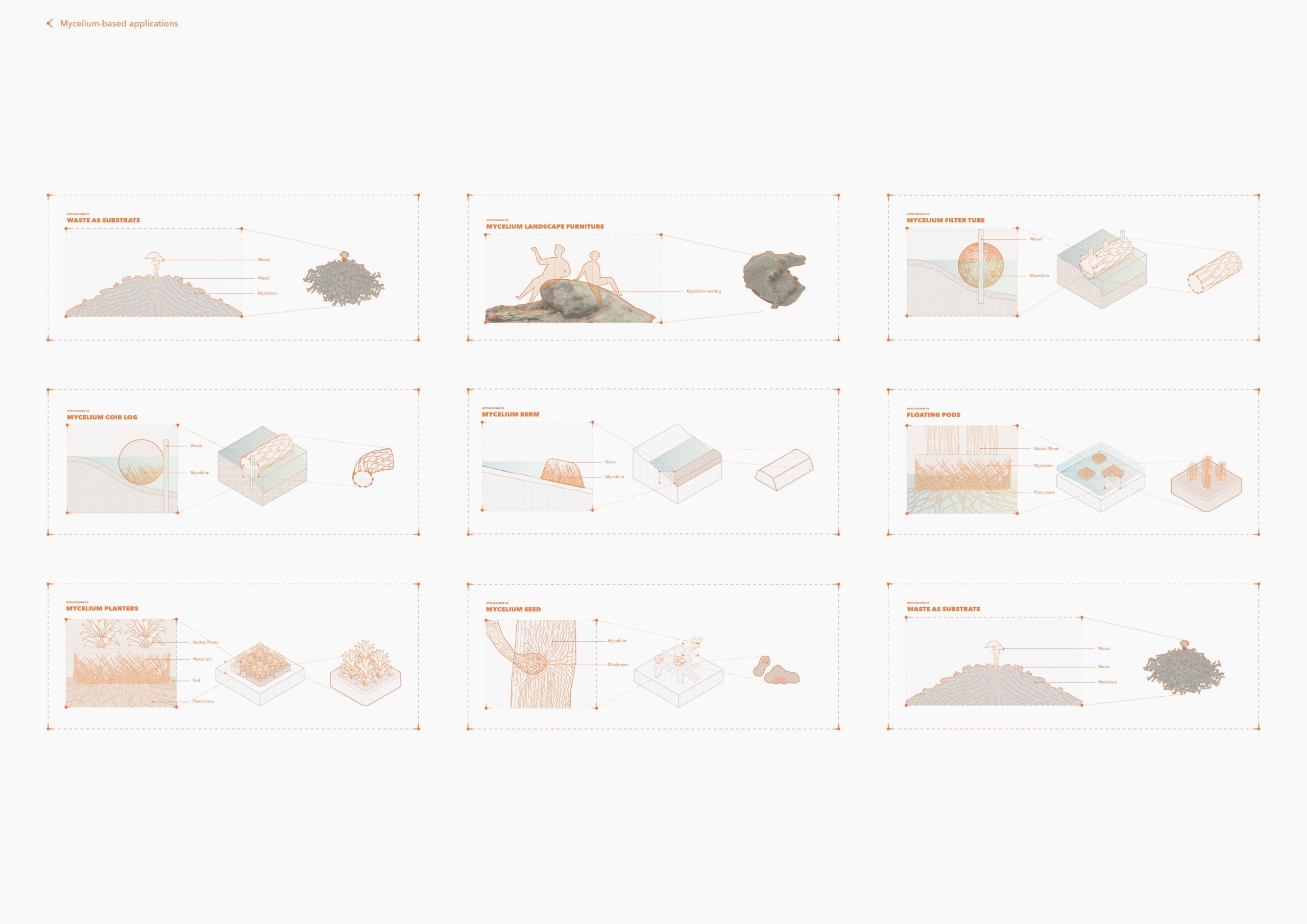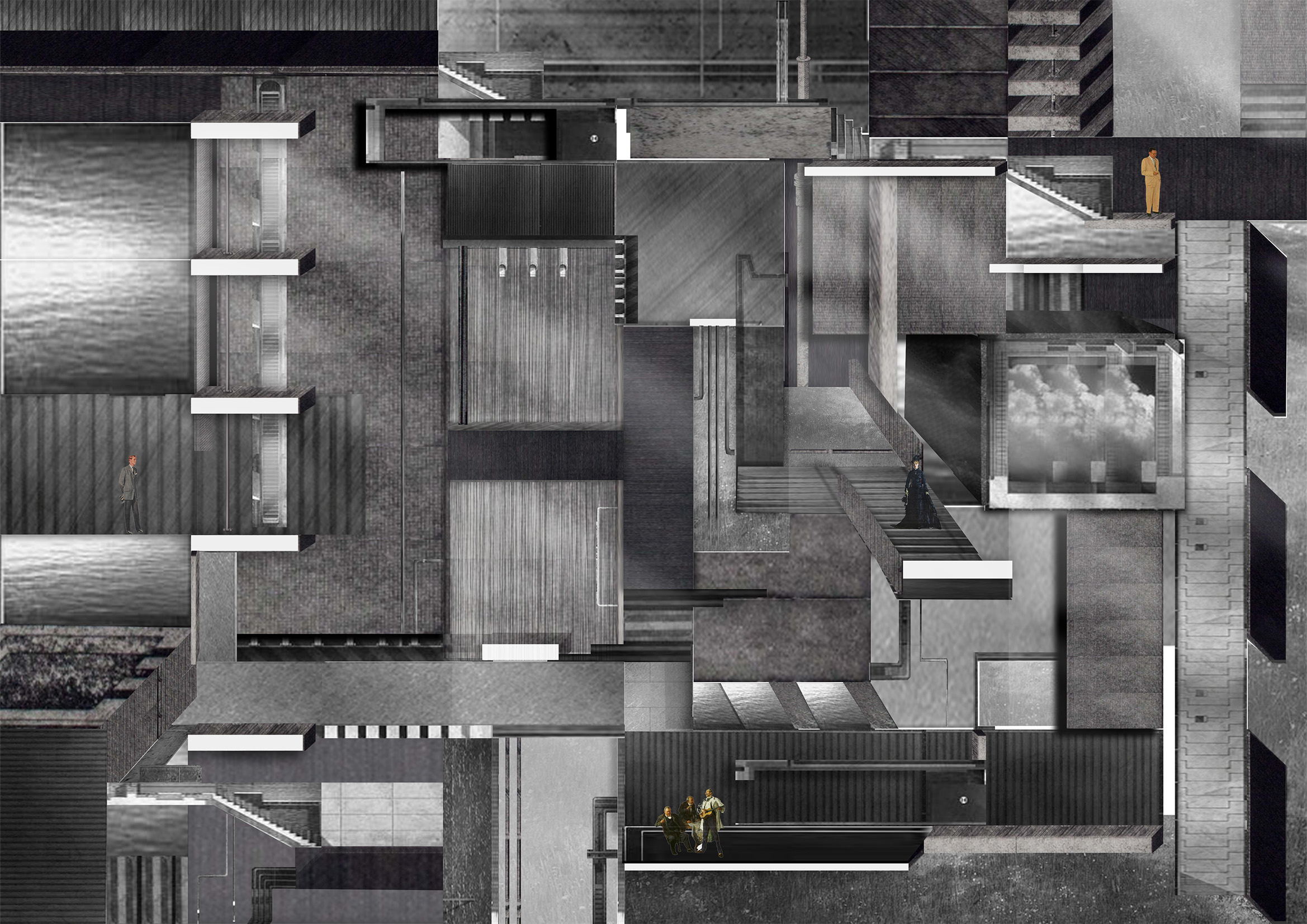Redefining Mycoscape:
Mycelium as a Catalyst for Transforming Landscape Practices and Fostering Ecological Restoration in Hong Kong
Hong Kong’s growing waste management crisis calls for urgent action and innovative solutions. My thesis, Redefining Mycoscape, explores how mycelium—the root-like structures of fungi—can be a game changer in landscape architecture and ecological restoration. Leveraging mycelium’s natural ability to convert organic matter into nutrient-rich soil, this research reimagines waste as a resource and mushrooms as agents of ecological recovery.
The project focuses on transforming waste into valuable materials and employing mycelium to decontaminate and restore degraded landscapes. The vision is clear: to harness mycelium’s bioremediation potential for rehabilitating landfills and fostering healthy ecosystems. In doing so, it not only addresses soil health but also contributes to sustainable landscape construction practices that align with natural processes.
This thesis argues for a new way of thinking—one where waste becomes a resource and where the integration of traditional knowledge with modern technologies can overcome the challenges of material development. By creating mycelial elements, I aim to explore how landscape architecture can shift towards sustainable, zero-waste construction and design fields.
From material prototypes to strategies for decontaminating landfills, Redefining Mycoscape presents a bold vision for an ecologically vibrant future. Through mycelium-based materials and processes, we can foster resilient landscapes and healthier urban environments.
Author: Tat
Thesis supervisor: Natalia Echeverri
Author Instagram
Other work by author
Exploring the Void and Material’s Personality














